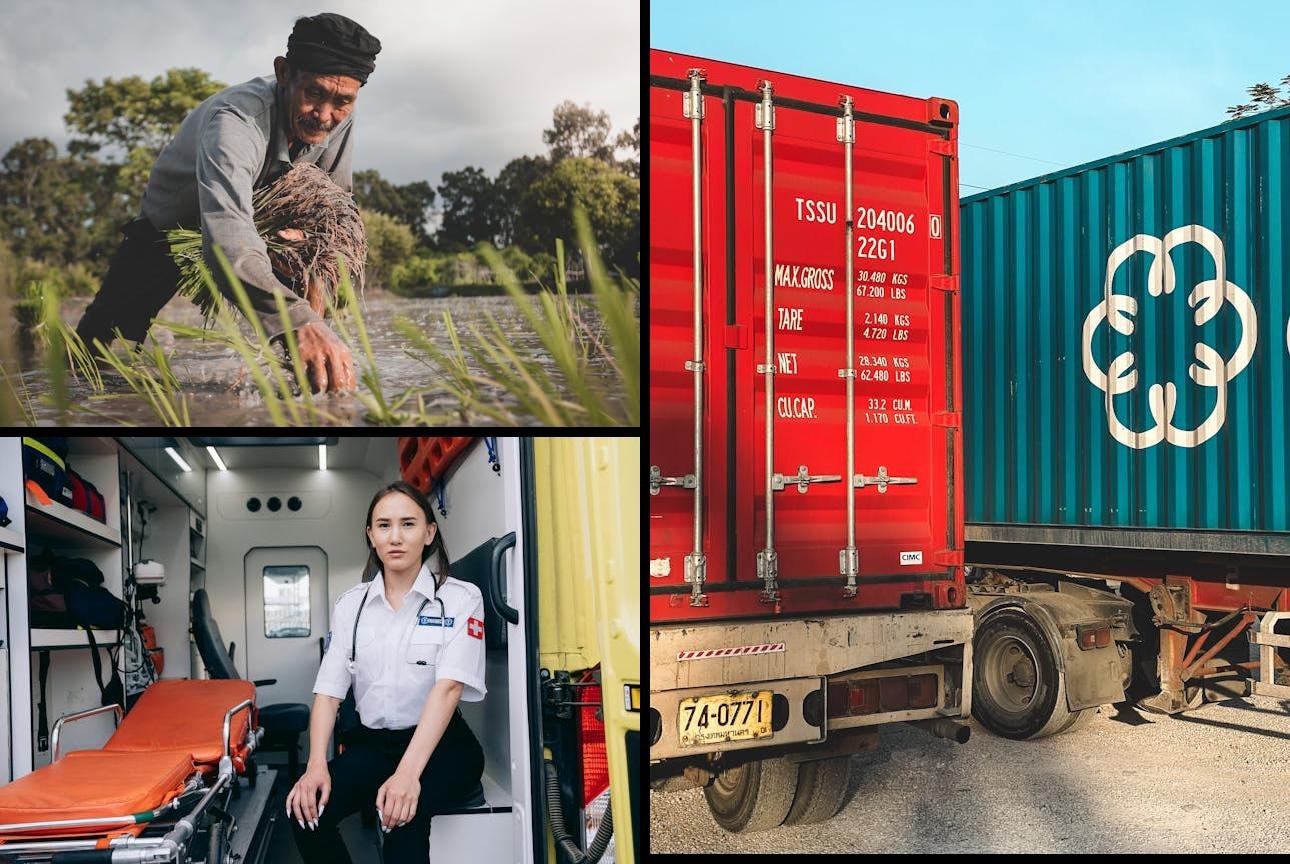BANGKOK — In what economists are calling the boldest leap in economic innovation since bartering, Thailand has announced an ambitious new plan to reorient its entire economy around a single sector: tourism. Dubbed the “One For You, One For Us” initiative, this daring program aims to achieve a 1:1 tourist-to-citizen ratio, with 71.7 million annual foreign visitors perfectly paired with local Thai citizens for personalized experiences.

“The concept is simple,” explained Ms. Thapanee Kiatphaibool, governor of the Tourism Authority of Thailand (TAT) and now the head of the newly formed National Tourism Governance Authority, which will oversee every aspect of Thai life. “Every Thai citizen will essentially adopt one tourist. From sunrise to sunset, they’ll provide undivided attention, assist with round-the-clock recommendations, and carefully guide them through curated authentic experiences—each packaged in photogenic moments optimized for social media engagement.”
The historic shift promises the transformation of Thailand into the world’s first 100% tourism-based economy. Under the new single-sector model, the TAT has ascended to become the sole governing body, assuming control of legislation, military, and, in a unique twist, even the monarchy. A uniform standard of tourism-first policies will be enforced nationwide, including “souvenir tax credits,” a national dress code of tropical shirts, and a nightly LED-lit tuk-tuk parade.
The End of All Other Sectors
Naturally, the bold transition means saying goodbye to legacy industries like agriculture, healthcare, and exports. “Food production will be simplified,” explained Ms. Thapanee. “We’ll package all rice exclusively for cooking classes, with limited domestic availability to drive up the ‘authenticity’ appeal.” Former farms will be repurposed into sprawling “Rural Life Centers” where tourists can experience “everyday Thailand” in sanitized, bite-sized, air-conditioned installments within 10-minute drives of 5-star hotels.
To ease the transition, mandatory hospitality training has been announced for all citizens, including specialized courses on popular tourist inquiries like “Does this floating market float all the time?” and “Can I pet this water buffalo?” Other modules include the art of pretending to enjoy being asked whether they “come here often” and the subtle craft of assuring visitors, “Yes, you got the best price” with convincing enthusiasm.

“Finally, a Vacation Without the Burden of Curiosity,” Say Eager Tourists Set to Experience Thailand Through Assigned Local Buddies
Excitement is bubbling among international tourists, or farang, who have started pre-booking their “adopt-a-local” experience in advance of their travels. Brian “Bangkok Bri” Stevens, a 31-year-old aspiring travel influencer from London, expressed his unbridled enthusiasm. “It’s perfect, mate. I’ve always wanted a local friend to show me the real Thailand, just like in the movies, but, you know, without the hassle of having to discover things for myself,” he said. “I mean, how else would I ever find a truly authentic Starbucks with locals? I can’t wait for my assigned Thai buddy to take me there every morning.”
Stevens went on to add that he’s particularly excited about the new “Personalized Tuk-Tuk Buddy” program, a special add-on where Thai citizens, trained for “personalized friendship immersion,” pick tourists up for exclusive adventures such as “street food stands selected by algorithm” and “tailored temple tours where monks take selfies on your phone.” Another tourist, Karen Pritchett from Wisconsin, noted, “I’m thrilled. I even heard we get to name our Thai friend for the duration of the trip. I’ll call mine something super traditional, like ‘Buddy.’ This is like cultural exchange, but I don’t have to do any actual research!”
New Measures to Ensure a Seamless Transition
When questioned about possible resource strains, Ms. Thapanee brushed off concerns with confidence. “Resources? We’ll generate new, entirely tourist-friendly resources. Our success will be measured not by outdated metrics like GDP or national debt, but by our ‘Global Impressions Index’—a progressive metric based on hashtags, social shares, and our international presence on influencer feeds.”
Additional resources will be reallocated from closed-down factories and industrial facilities, which are to be converted into premium “heritage selfie zones” and pop-up artisan craft markets where citizens can showcase traditional crafts they learned last week.
The program will roll out gradually, with a full 1:1 ratio expected by 2030. Until then, every Thai citizen will be assigned a “Visitor of the Month” to help smooth the transition, and monthly “Tourism Harmony Day” celebrations will encourage locals to dress as popular tourist stereotypes for cultural exchange, complete with faux accents and an ironic fascination with their own landmarks.
With plans for augmented reality Buddhist temples and “drive-thru monk blessings” in the works, Thailand is set to become a trailblazer in single-sector economies and an international leader in experiential GDP.
“This Is Like Watching a Slow-Motion Car Crash in Macroeconomics,” Warns IMF Expert Confronted With Thailand’s Tourism-Only Economic Strategy
The radical single-sector approach has sent international economists into a frenzy of facepalming and double-takes. Dr. Leslie Chiang, a professor of Economics at Princeton, attempted to make sense of Thailand’s plans, comparing it to a “surreal fever dream” of economic theory gone wrong. “Typically, a nation diversifies its economy to mitigate risks. Tourism is a high-risk sector, as it’s vulnerable to global travel trends, pandemics, and political issues,” she explained. “A single-sector tourism economy? The Thais would have better luck planting their currency reserves in the ground and trying to grow a money tree.”

In a statement, Javier Mendoza, senior economist at the International Monetary Fund, warned, “This plan is beyond unsustainable; it’s borderline utopian, or maybe dystopian. Imagine if every Thai citizen were to suddenly be unemployed because tourists just, well, stopped coming.” Mendoza added, “What’s next? Thailand producing exclusively Instagrammable dishes as its agricultural output? This is economic innovation gone mad.”


